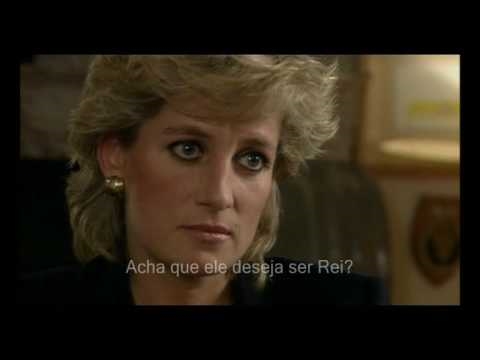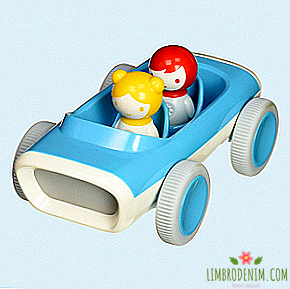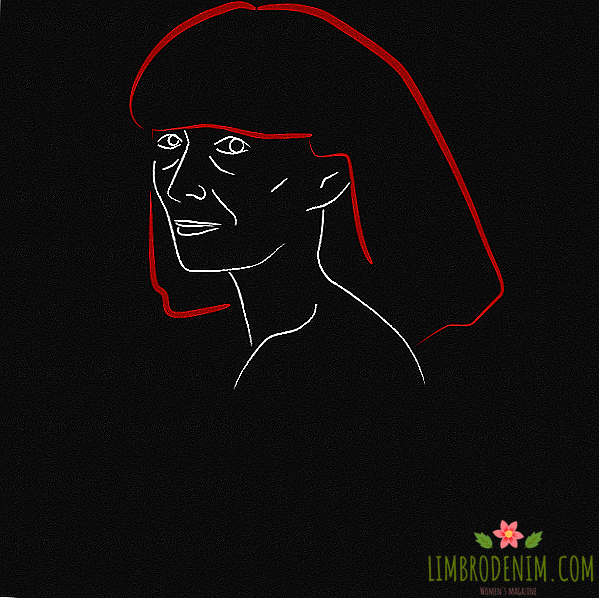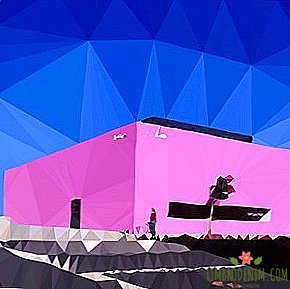“You try not to lose yourself”: I work with “Doctors Without Borders”
Work in zones of military conflicts seems to be a lot of "non-female" - even despite the traditional image of a bold nurse helping the military on the battlefield. We talked with Catherine, who collaborates with the international humanitarian organization Doctors Without Borders, about the missions she visited, the difficulties and what helps her to recover during a peaceful life.

About trip to Ukraine and burnout
What was happening in Ukraine was like if I saw a street in the news that went to work every day — and suddenly the war started right on it. There is a choice before you: either you continue to sit on the sofa and watch TV, or try to do something, because you care, because there are people like you. Since this all started.
I did not join anyone - it was an internal urge. We had a small initiative group, we organized a forum of volunteers who help civilians (there are also those who help the military - but we did not work with them). It was about two hundred participants. This was important because the volunteers often did not even know each other in person and felt lost. The purpose of the forum was to give everyone to meet and help each other.
When I went to Ukraine for the first time, many felt that I had lost my mind. It is very dangerous, I have a child at home, and no one knew what could happen. I myself doubted - but when I was on the Ukrainian side, I realized that there was no way back. For some reason, I recall the phrase of Antoine de Saint-Exupéry from “The Little Prince”: “When you say to adults:“ I saw a beautiful pink brick house, there are geraniums in the windows, and there are pigeons on the roof, ”they can’t imagine home. They should say: “I saw a house for a hundred thousand francs,” and then they exclaim, “What a beauty!” “When you work in difficult conditions and encounter people who are in a difficult situation, you involuntarily overestimate a lot.
With great fear, the woman finally entrusted the baby to me - and when she saw that nothing had happened to the child, she finally relaxed. In parting, she said: "I will never forget you, you will be like a godmother for me"
There was a time when I was traveling by train from Kiev to Slavyansk, and next to me was a woman. She was returning to her hometown, in her arms was a two-month-old girl. She clutched her daughter to her, and it was obvious that she was holding onto her like a straw. Because of the stress, the mother did not have breast milk, and she needed to prepare the mixture. I offered to hold the child, but she said she could handle it herself - she tried to pour hot water, but got past the bottle, everything fell out of her hands. With great fear, she still entrusted the baby to me - and when she saw that nothing had happened to the child, she finally relaxed. We traveled on the train for almost six hours, and she fed the girl three or four times more - and each time she calmly gave me to hold her. In parting, she said: "I will never forget you, you will be like a godmother for me." She was afraid to come back: she was afraid that at home everything would be different. When I held the girl in my arms, I realized that even if I didn’t do anything here, it would be enough to help someone with the child.
Of course, when you work in difficult conditions and see human grief, it leaves its mark. I would not talk about burnout, but there were other experiences. For example, it is difficult to return from the conflict zone to the ordinary world for the first time when the mission ends. The first time with me was just after Ukraine. There I got used to driving from my place of work through roadblocks under shelling, I got used to listening to scary stories of people. They talked about how they lived in basements for three weeks, how their children began to have a nervous tic, how their lives changed, how they, like in the nineties, stand in lines to get a loaf of bread, how an animal awakens in people when they lose human dignity - when they are forced to lose it.
It was New Year's Eve, people rejoiced. Somehow I met a group of young people: they were jumping and shouting something stupid. Then I burst out - I just walked down the street and cried bitterly
When I returned, at first I just felt completely lost. I needed to buy food, but I went to the store and could not take anything. It was New Year's Eve, people rejoiced. Somehow I met a group of young people: they were jumping and shouting something stupid. Then I burst through: I just walked down the street and cried bitterly. It seems to you that the people around do not understand what is happening in the conflict zone - although they talk about it, consider themselves experts, think they know how to solve the problem and help people. A colleague said that almost everyone for the first time through this pass. Perhaps this can be called a post-traumatic syndrome, although I myself have not suffered from the conflict.
But you need to come back to life. It’s hard at first: it seems to you that people do not understand you, you cannot tell them what you’ve been through - for them it's like a movie. But in fact, and you need to understand them, give them support you. You need to overcome yourself and not be aggressive towards those who live a peaceful life. You can not ignore the emotions, you need to take this pain and not think that something is wrong with you. And do not be afraid - especially for the first time.
Transfer of experience also helps to recover. Between the missions, I was in Armenia to get distracted and relax - a year or two ago there was an aggravation of the military conflict. I stayed in a hostel: a guy who just was in a hot spot came to the same place. He tried to tell his friends how it was, but he had a lump in his throat, he could not find the words. Then we talked: I told about myself, and for some reason he saw in me a man who would understand him. Our conversation and the realization that he was not the only one helped him to relax. In parting, he gave me his talisman - a wooden cross. I am not a religious person, but for me it is a special gift.

About "Doctors Without Borders" and Central African Republic
“Doctors Without Borders” is an international independent medical humanitarian organization that provides medical assistance to people affected by conflicts caused either by natural conditions or by a person — epidemics, armed clashes, violence, poor nutrition, floods, earthquakes, and much more. Officially, I started working with "Doctors Without Borders" recently. The first time I ran into them was in 2009, when I was invited to be translated for the head of the mission. At first I collaborated as a freelancer, then kept in touch with the organization when events began in Ukraine. Now I am in the state.
I do not have medical, but philological education (I studied foreign languages - French, English), but once in the humanitarian sphere, you can change your profile - what happened to me. Already officially with Doctors Without Borders, I worked in the Central African Republic - a financial manager. Now I have a slightly different position, but it is also associated with money. A person who only gets into "Doctors without Borders" usually starts "in the field" to work directly with people who need help. I do similar things.
Humanitarian organizations have universal principles of work. For me, probably the most important is the principle of neutrality. When you work in a conflict zone, you cannot take either one or the other side. If you are neutral (and your goal is to support a person, help him, regardless of his or your views and beliefs), it helps to gain confidence. You see the result of the work, you see that they accept you here and there. This is important to me: if I help people, I must proceed from this principle, despite the fact that we all have personal goals and interests.
For me, probably the most important thing is the principle of neutrality. When you work in a conflict zone, you cannot take either one or the other side.
I finished my first mission with “Doctors Without Borders” at the end of October - in the capital of the Central African Republic, Bangui. It was a project about female reproductive health. Our mission is engaged in two so-called maternity - "women's" hospitals that help pregnant, giving birth and babies, both medically and psychologically.
I worked in the area of Bangui, which is called the Muslim enclave - in a small hospital. There happened to me a story similar to the one that happened in Ukraine. I left the office in the yard to take a break and noticed a young girl who was holding a child in her arms - he was probably six months old. It was hard for her, she tried to lean on something with her back. I approached her and offered to help - she immediately gave me the baby. We began to communicate, it turned out that she was fifteen, the same as my daughter. She began to tell that her husband was killed, that she came to the hospital because her mother needed help. Then she asked if I could read the local language, Sango, and said that she went to school and was in sixth grade. I replied that no, but she proudly declared: "And I know how!" - and began to read all the signs around - about hygiene, about how to properly wash their hands. This moment I remember most of all for six months of work in Africa. When you touch human life, but do not violate it and can even support a little bit, this is the most valuable thing.
On new missions and the importance of small things
We work under contracts: working in a humanitarian organization does not imply that I have a fixed position and I can work on it until retirement. Now I have a preliminary agreement for a year: I travel to short missions to several countries during the year. We are introducing new software that allows you to manage your purchases and the financial part. My task is to help implement it, train people on the ground.
In the Central African Republic, our movements were limited, almost unable to communicate with the people who live there. Lack of personal space and freedom of movement is very hard. After the Central African Republic, I worked in Egypt: here, humanitarian work is aimed at helping victims of violence and refugees. Cairo is a dusty city, it’s hard to breathe, but I went to work every day for half an hour on foot - because I remembered how I couldn’t do this for half a year.
In cramped conditions, you begin to pay attention to the little things and rejoice in them. You remember the view from the window. You meet boys at the house, and you try to communicate with them for a bit - you remember the look, the smile of a child. Now I am in Mozambique - in the capital of the country Maputo. In short, the mission is dedicated to working with HIV-positive people. The work is the same, only responsibility is more: you have to sleep less, eat less, try not to answer Arabic “thank you” when they speak Portuguese, drive around anopheles mosquitoes and make others feel good afterwards.
On the spot help little things. I always take my mug - I would never do this when traveling around Russia, but in the mission it is necessary: this is a small piece of the house
When I leave for a mission, the most important thing is for someone to wait for me to go back. Probably the worst thing, when you are far from home, to receive unexpected bad news. You have not returned yet, but they seem to be killing you, you will not wish that on anyone. On the spot help little things. I always take my mug - I would never do this when traveling around Russia, but in the mission I’m sure to: this is a small piece of the house. I take tea with herbs that my mother gathered in the garden - you are far away, but you can be close to your loved ones.
Try not to lose yourself. The rhythm of life to which you are accustomed cannot be fully reproduced elsewhere - but you need to maintain yourself, continue to look after yourself as far as you can. I try to create comfort where I live. You come to an empty room (sometimes you share it with someone), in the house with you live from three to twelve people. You have to be very flexible: accept what you cannot change, but remain positive, try to extract something good, precious from situations. Otherwise it will be hard.
Photo: personal archive of the author, Sasha Maksymenko / Flickr, press service





